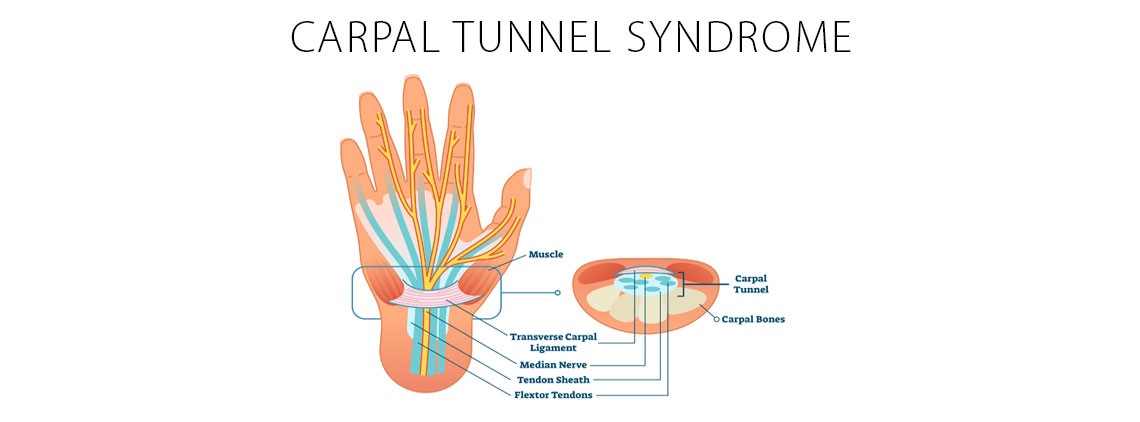
Overview
If you have carpal tunnel then the pain, numbness, shock like sensations, burning, weakness, or clumsiness are symptoms you know all too well. You might also have tingling in your arm and hand. These symptoms may get worse at night due to the way you position your wrist when you sleep. What you may not know is the pain is due to a major nerve being pressed or squeezed in your wrist. An early detection of carpal tunnel may allow us time to treat the symptoms through wearing a brace or avoiding activities which might inflame the symptoms. However if the pain and pressure continue, it can cause nerve damage or other symptoms. Surgery may be required to correct the issue.
The synovium is a tissue which lubricates the tendon making it easy to move your fingers. When the tunnel narrows, where the tendon travels through your wrist, due to the synovium swelling, it crowds the nerve.
While there typically isn’t an injury or accident associated with getting carpal tunnel, there are several reasons one can get carpal tunnel:
- Repetitive Movement Doing the same movements or activities over a long period of time may aggravate the tendons ultimately causing swelling in the wrist which pressures the nerve.
- Heredity. Traits like the amount of space for the nerves in your wrist is something that can run in families.
- Position.. Activities that cause your hand or wrist to be held in one position for an extended period of time can create a great deal of pressure on the nerves.
- Pregnancy. Changes in hormones can cause swelling.
- Health ConditionsRheumatoid arthritis, thyroid gland imbalance, and diabetes are conditions which increase your chances of having carpal tunnel syndrome.
Nonsurgical Treatment Options for Carpal Tunnel
Carpal Tunnel is known to get more painful over time without treatment. If you are able to catch it in the early stages, you can slow or stop the progression of the disease with some of the treatments below:
- Bracing In order to keep your wrist straight at night, you can wear a brace or splint while you sleep. This will keep your wrist in a straight position which reduces the pressure on your nerve. We may also suggest wearing the brace during the day if you are frequently doing activities which cause you pain.
- Anti-Inflammatory Medicine. Take medicine like ibuprofen or naproxen to help alleviate inflammation and pain.
- Activity Modification. We may ask what type of activities you do throughout the day. After understanding your typical day, suggestions may be provided of how to modify these activities in order to slow or stop the progression of your carpal tunnel. Some of these changes may need to be made at your worksite or work station.
- Exercises. In order to move your median nerve more freely, exercises may be provided for you to do at home.
- Steroid Injection.If some of the options above aren’t working, a more powerful anti-inflammatory medicine can be injected directly into your carpal tunnel. Some patients experience the result of steroid injections to only be temporary.

